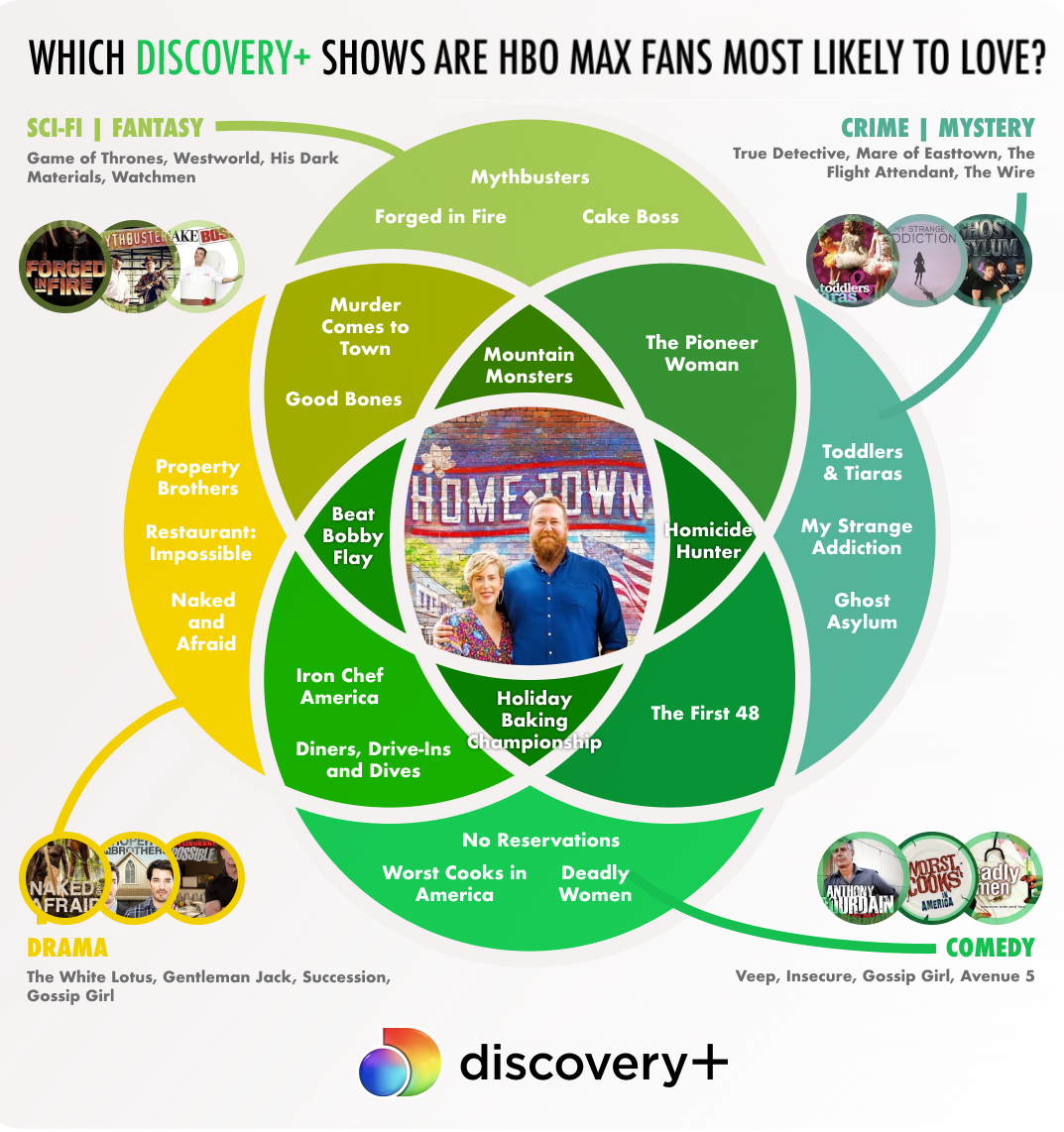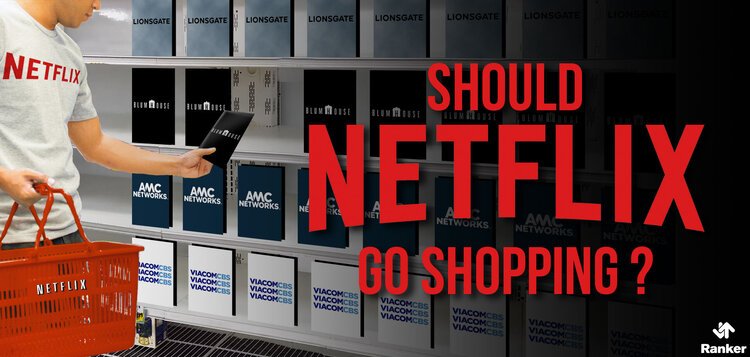Marketing a Merger
How HBO Max and Discovery+ Can Sell Themselves to Their New Subscribers
Photo: Warner Bros./Discovery
The upcoming merger of HBO Max and Discovery+, the Discovery Channel’s exclusive streaming service, looks like a great idea for both parties involved. The new service, which is slated for a spring 2023 rollout and will likely be called “Max,” will combine massive viewerships, introducing the two service’s respective content libraries to entirely new audiences. But the greatest potential benefit of this merger could also be its greatest obstacle. Neither platform knows much about the tastes of the massive audience it hopes to absorb, and therefore, how to market to it. To overcome this initial hurdle, the two services will need data on the viewing habits of TV audiences across platforms — data that Watchworthy just so happens to have.
Built with over a billion Ranker votes from TV fans everywhere, as well as the in-app data submitted by users over time, Watchworthy is able to take the viewing preferences of any given person and offer up TV recommendations that they’re statistically more likely to enjoy. We created viewer personas for each platform, each with tastes leaning toward different genres in TV, and mapped out which HBO Max series are most likely to appeal to which Discovery+ fans (and vice versa).
For demonstrative purposes, we organized HBO Max viewers into four basic categories: fans of drama (including shows like The White Lotus and Succession), comedy (Veep and Insecure), sci-fi and fantasy (Westworld and Game of Thrones), and crime/mystery (Mare of Easttown and True Detective). Some Discovery shows were more likely to be enjoyed exclusively by one group, while others were beloved by multiple groups. For instance, No Reservations was recommended only to drama fans; Iron Chef America to fans of both comedy and drama; Beat Bobby Flay to fans of comedy, drama, and crime; and Home Town to fans of all four genres. Here are a few takeaways that jumped out:
Sci-fi Fans Love Putting Fantasy to the Test — MythBusters applies scientific scrutiny to common notions from TV and film, while Forged in Fire sees bladesmiths competing to create the best real-life iterations of weapons from history and fantasy. Those who love HBO Max’s sci-fi/fantasy programming are also more likely to love How It’s Made, the docuseries that explores how everyday products and utilities are manufactured. HBO Max sci-fi fans seem to love reality series that ground their favorite fantastical shows.
Comedy and Crime Go Together — Watchworthy recommends Homicide Hunters, On the Case with Paula Zahn, Deadly Women, The First 48, Disappeared, and Homicide Hunters to fans of HBO Max comedies. That’s more true crime content than was recommended to crime/mystery fans! These TV viewers seem to like either true crime or fictional crime shows; love for one doesn’t necessarily translate into love for the other.
Home Town Has Universal Appeal — Home Town, a show that follows a couple as they renovate turn-of-the-century homes, was the only Discovery series that was recommended to fans of all four genres. That tells us two things: first, that Home Town really is a winner for Discovery+; and second, that Watchworthy is searching for the characteristics that make each viewer unique, avoiding too much crossover between recommendations.
For Discovery+, we organized the content into shows concerned with romance and relationships, food and cooking, home/decor, and true crime or the supernatural. Here’s what Watchworthy told us about the tastes of these reality TV fans:
Cooking Really Is a Science! — Among the HBO Max shows that appeal most to food and cooking show fans are Doctor Who and Rick and Morty, two sci-fi series about the interdimensional adventures of a hero and their companion. Among the other series recommended to these TV foodies are The Big Bang Theory and Young Sheldon, comedies that happen to be about science geniuses, and Chernobyl, a historical drama about the tragic meltdown that occurred at a Ukrainian nuclear power plant in 1986.
For Discovery Fans, True and False Crime Both Have Appeal — Our analysis of HBO Max subscribers discovered that comedy fans are more likely to love true crime than fans of fictional crime/mystery shows. Here, however, we found that the converse isn’t true: Discovery watchers who love reality shows about crime and the supernatural also love dramas about crime and the supernatural, including Stephen King adaptation The Outsider and serial killer period piece The Alienist.
(Almost) Everybody Loves Superheroes — The two shows that were recommended to all four groups — The Nevers and Superman & Lois — are both centered on superpowered individuals fighting to protect the world from the forces of evil. The only other superhero show to be recommended, Peacemaker, appealed to all but one category of Discovery viewer.





